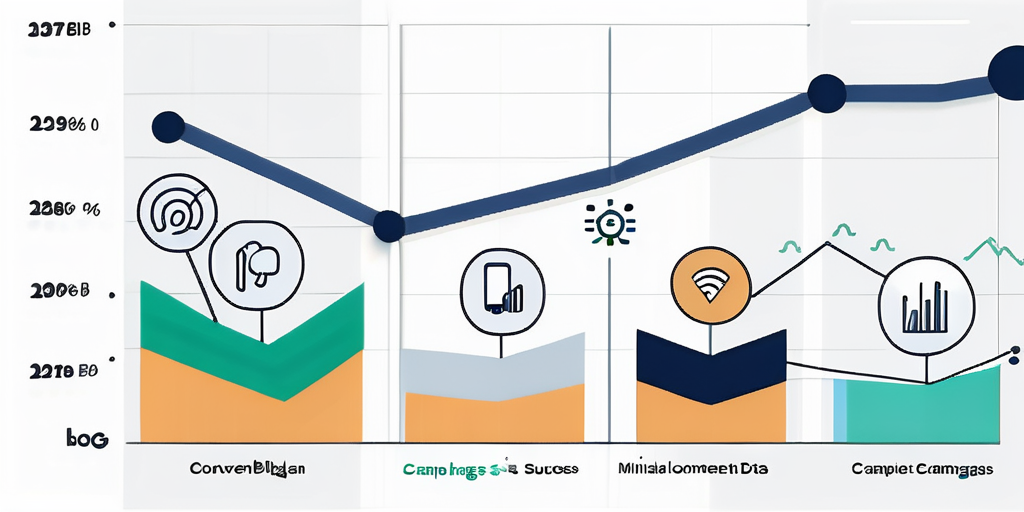Measuring Social Media Campaign Success: A Comprehensive Guide

Social media campaigns have become an integral part of marketing strategies for businesses of all sizes. With the ever-growing popularity of platforms like Facebook, Instagram, Twitter, and LinkedIn, it is essential to measure the success of these campaigns accurately. However, many businesses struggle to determine the effectiveness of their social media efforts. In this comprehensive guide, we will explore the various metrics, goals, tools, and strategies you need to measure and improve the success of your social media campaigns.
Understanding Social Media Campaign Metrics
Before delving into the nitty-gritty of measuring social media campaign success, it is crucial to understand the importance of social media metrics. In today’s digital age, data is king, and social media analytics provide valuable insights that can help inform your marketing decisions.
Social media metrics allow you to track and analyze the performance of your campaigns. They provide tangible evidence of how your efforts are resonating with your target audience and achieving your business objectives.
But what exactly makes social media metrics so important? Let’s dive deeper into their significance.
Social media metrics go beyond mere vanity metrics, such as likes and followers. While these metrics can give you a quick snapshot of your social media presence, they don’t provide the full picture. Instead, you need to focus on tracking the right metrics that truly reflect the impact of your campaigns.
By tracking the right metrics, you can identify what is working well and what needs improvement, thus allowing you to optimize your strategies for better results. For example, if you notice that your engagement rate is low, you can experiment with different types of content or posting schedules to increase audience interaction.
Moreover, measuring social media metrics enables you to demonstrate the value of your campaigns to stakeholders, such as executives or clients. It provides tangible evidence of your return on investment and allows you to make data-driven decisions for future campaigns.
Now that we understand the importance of social media metrics, let’s explore some of the key metrics that can help you assess the effectiveness of your campaigns:
- Engagement rate: This metric measures how well your audience is interacting with your content. It includes likes, comments, shares, and click-through rates. A high engagement rate indicates that your content is resonating with your audience and driving meaningful interactions.
- Reach: Reach indicates the number of unique users who have viewed your content. It gives you an idea of the size of your potential audience. By tracking reach, you can assess the visibility of your campaigns and identify opportunities to expand your reach.
- Conversion rate: This metric tracks the percentage of users who complete a desired action, such as making a purchase or signing up for a newsletter, after engaging with your social media content. A high conversion rate indicates that your campaigns are effectively driving user actions and achieving your business goals.
- Referral traffic: Referral traffic measures the number of users who visit your website or landing page through a social media platform. By tracking referral traffic, you can assess the effectiveness of your social media channels in driving website visits and conversions.
- Sentiment analysis: Sentiment analysis gauges the overall sentiment towards your brand or campaign by analyzing user comments and mentions. By monitoring sentiment, you can understand how your audience perceives your brand and make necessary adjustments to improve brand sentiment.
By keeping a close eye on these key metrics, you can gain valuable insights into the success of your social media campaigns. Remember, data is your ally in the ever-evolving world of social media marketing.
Setting Goals for Your Social Media Campaign
Before diving into measuring the success of your social media campaigns, it is crucial to set clear and specific goals. Establishing goals allows you to define what success looks like for your business and provides a benchmark for measuring your progress.
When it comes to defining your social media goals, it’s important to ensure that they align with your overall business objectives. This alignment ensures that your social media efforts are not just a standalone activity, but rather a strategic part of your larger business strategy.
Defining Your Social Media Goals
Your social media goals should be specific, measurable, attainable, relevant, and time-bound (SMART). This framework helps you create goals that are not only realistic but also trackable and meaningful.
Let’s say your goal is to increase brand awareness. To make it more specific, you could aim to achieve a certain number of impressions or reach a specific target audience. These measurable objectives provide a clear direction for your social media efforts and allow you to gauge your progress along the way.
Aligning Social Media Goals with Business Objectives
Aligning your social media goals with your broader business objectives is essential for maximizing the impact of your social media campaigns. By doing so, you ensure that your social media efforts contribute effectively to your overall success.
For instance, if your business objective is to increase sales by 10%, your social media goals may include driving traffic to your e-commerce website, increasing conversion rates, or nurturing leads through targeted social media campaigns. By aligning these goals, you create a cohesive strategy that leverages the power of social media to drive tangible business results.
Remember, your social media goals should be directly tied to the key performance indicators (KPIs) that indicate progress towards your business objectives. This alignment allows you to measure the effectiveness of your social media campaigns and make data-driven decisions to optimize your results.
Setting goals for your social media campaign is not just about having something to aim for; it’s about strategically aligning your efforts with your overall business objectives. By defining clear and specific goals that are SMART and aligning them with your broader objectives, you set yourself up for success in the dynamic world of social media marketing.
Tools for Measuring Social Media Success
Now that you understand the importance of social media metrics and have set your goals, it’s time to explore the tools available for measuring the success of your social media campaigns.
Overview of Social Media Analytics Tools
There is a wide array of social media analytics tools available, each with its own unique features and capabilities. From free tools like Google Analytics and Facebook Insights to paid platforms like Sprout Social and Hootsuite, these tools offer valuable insights into your social media performance. They provide metrics, generate reports, and help you analyze your data effectively.
Choosing the Right Tool for Your Campaign
When selecting a social media analytics tool, consider your specific needs and budget. Assess the features, data visualization capabilities, and integration options of each tool. Additionally, examine customer reviews and testimonials to gain insights into user experiences and satisfaction levels.
Remember, the right tool will depend on your unique requirements, the platforms you use, and the depth of analytics you require.
Interpreting Social Media Data
Once you have collected social media data using the appropriate analytics tools, the next step is to interpret and analyze the findings. This analysis will provide valuable insights that you can use to refine your social media strategies.
Analyzing Social Media Data
When analyzing social media data, look beyond superficial metrics. Dive deep into the data to identify patterns, trends, and correlations. Compare metrics over time, across different campaigns, and against industry benchmarks.
For example, if you notice a spike in engagement rate during a particular campaign, analyze the content and elements that contributed to this success. By understanding what resonates with your audience, you can replicate and optimize your future campaigns.
Making Sense of Social Media Analytics Reports
Social media analytics platforms generate reports that summarize your campaign performance. These reports are rich in data and often include visualizations, such as charts and graphs.
To make sense of these reports, focus on key metrics that align with your goals and objectives. Identify trends, outliers, and areas for improvement. Use the insights gained to inform your future campaigns and make data-driven decisions.
Improving Your Social Media Campaign Based on Data
Measuring social media campaign success is not just about collecting metrics; it’s about using those insights to refine and improve your future campaigns. Let’s explore some strategies for leveraging your data effectively.
Using Data to Refine Your Social Media Strategy
Regularly analyze your data to identify opportunities for improvement. Look for patterns and trends that suggest areas of strength and weakness in your campaigns. Based on your findings, make adjustments to your content strategy, posting frequency, target audience, and platforms.
For example, if your data reveals that your audience engages more with videos than with text-based posts, consider investing more resources into video content creation.
Leveraging Data for Better Engagement and Conversion
Data can also help you optimize your engagement and conversion rates. Analyze the performance of your call-to-actions, landing pages, and lead magnets to identify areas for improvement. Use A/B testing to experiment with different approaches and measure the impact on user behavior.
Additionally, leverage insights gained from social media analytics to personalize your campaigns. Tailor your content to your target audience’s preferences, interests, and pain points. By delivering relevant and valuable content, you can increase engagement, build trust, and drive conversions.
As social media continues to evolve, so do the methods for measuring campaign success. It’s essential to stay up-to-date with the latest trends, tools, and techniques in social media analytics. By doing so, you can continuously improve your campaigns and drive meaningful results for your business.
In conclusion, measuring social media campaign success requires a strategic approach. By understanding the importance of social media metrics, setting goals, utilizing the right tools, interpreting data, and leveraging insights, you can optimize your social media campaigns and achieve tangible results. Remember, success is not measured solely by the number of likes or followers but by the impact and value your campaigns generate for your business.
Ready to elevate your nonprofit’s digital presence and maximize the impact of your paid social media campaigns? BlueWing is here to help. With our expertise in managing paid media and our commitment to helping organizations like yours thrive, we’re the partners you need to build a sustainable growth engine. Let us show you how we can outperform industry benchmarks and keep you updated every step of the way. Contact us today to start amplifying your impact with BlueWing.





